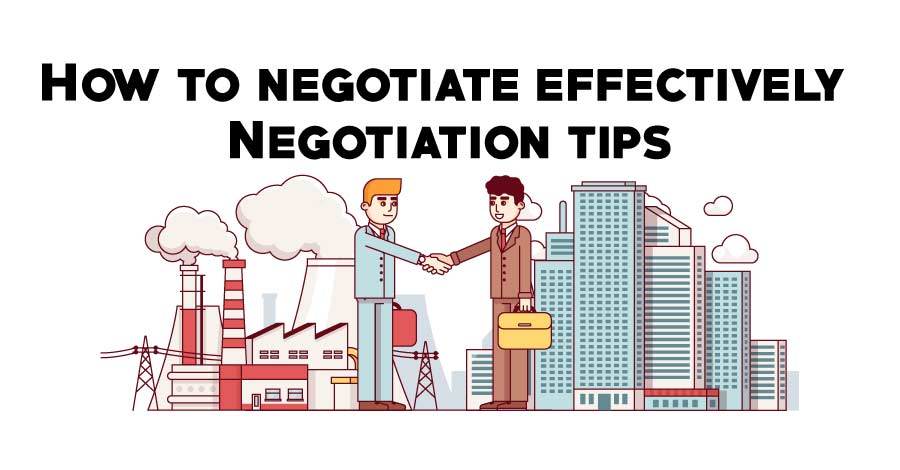Negotiation is not a skill which you use to bargain a price for an item you want to purchase. The reality is that negotiation has much wider application and everyone negotiates every day, in just about every interpersonal interaction, it’s important to know how to negotiate the right way.
How to negotiate effectively is what we are covering in this article. Negotiation is a skill and it can be developed.
Why is it important to be trained or to train people in negotiation?

How to negotiate is a question that is often neglected. Apparently the reason is that we tend to believe that we are good in negotiation anyways.
A research conducted by Training Industry India reveals that out of 5 key competencies for a sales job role, respondent chose negotiation as the least priority skill to be trained on.
The reality however was different. The job role included a lot of negotiation in terms of delivery, quality, timeline, price and many other variables.
So what, may be they were already very skilled in that? The other part of the story is they were scoring the lowest in behaviors that would lead to successful negotiation. Furthermore the organization data also corroborated our finding
Therefore the key, whether you are an individual or an organization, you should not assume that you already know how to negotiate or your employees already are good at it. You should see if you are making any one of the mistakes listed below.
Six Mistakes you should not make while negotiating
1. Neglecting the other side’s problems
If you do not understand the problems your negotiation partner needs to overcome, you will not offer them the correct solution and you will lose an effective bargaining chip.
You need to win trust. See about winning trust
2. Letting price bulldoze other interests
It is easy to focus exclusively on price. Make sure you consider other important factors – such as creating a positive working relationship and goodwill between both sides, and a deal-making process that is respectful and fair to everyone.
3. Letting positions drive out interests
While two sides of a debate may have opposing positions, they may also have compatible interests. Rather than working to persuade someone to abandon their position, it can be more productive to work on innovating and creating a deal that is able to satisfy a range of interests. Here, keep the big picture in mind: don’t give up or fail because the detailed working is difficult or frustrating.
4. Searching too hard for common ground
Common ground can help negotiations, but different interests allow both sides to get something out of the deal. The key is to give and get: don’t simply look for disappointing compromises.
5. Neglecting BATNA
BATNA stands for ‘best alternative to a negotiated agreement’ – that is, the options if the deal falls through. These may include approaching other companies or adjusting your business model. By fully analysing your prospects – and your partner’s prospects – you can decide what to offer in the negotiation and when to offer it.
6. Failing to correct for skewed vision
Two types of bias can be present – role bias and partisan perception. Role bias (the confirming evidence trap) is the tendency to interpret information in self-serving ways, overestimating your chances of success. Partisan perception (the over-confidence trap) is the tendency to glorify your own position while vilifying opponents. Overcome these biases by placing yourself in the position of your ‘opponent’.
How to negotiate? Actions of successful negotiators
As well as an ability to avoid pitfalls, great negotiators also have other qualities:
• They understand the other side’s aims, perspectives and experience – essential to persuading them why they should agree.
• They also thoroughly research an individual or company before negotiations. They do not limit research to information relevant to the deal. Broadening the scope to the industry, goals and market conditions provides extra weight in negotiations.
• They are measured and avoid being overly aggressive. They may show firmness but remember that mutual understanding and rapport is essential.
• Above all, they seek a ‘win–win’ outcome by thoroughly exploring full range of potential agreements that would allow both sides to benefit from the negotiation.


